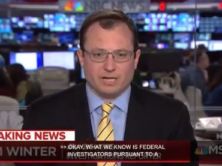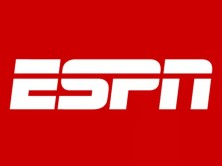
(Credit: PublicDomaincPictures)
It was bad enough that the Providence Journal outed an anonymous source in a story retraction. But then, the editors also blamed the errors in the story on the source, claiming he gave bad information.
In a July 26 editor’s note retracting its own story, the Providence Journal disclosed it unpublished a story based on an anonymous source. But, while explaining what they did, the newspaper also identified the anonymous source, retired police officer Carmine Giarusso. The now-retracted story reported there was a confrontation between police at a memorial service, according to the editor’s note. That editor’s note from executive editor Alan Rosenberg put the blame for the errors in the report on Giarusso, alleging he gave bad information.
iMediaEthics wrote to the Providence Journal‘s executive editor Rosenberg to ask about the decision to identify its anonymous source. We also asked if Giarusso was warned before being named as the anonymous source, and if the original, now-retracted story was in print as well as online. “Mr. Giarusso has told me he is considering legal action, so I don’t feel comfortable discussing this with you,” Rosenberg e-mailed iMediaEthics.
However, iMediaEthics called Giarusso who maintained he gave accurate information to the newspaper’s reporter, adding that he clearly told the reporter what he had firsthand or secondhand knowledge of. He argued the paper erred in reporting on what he told them, and because of the Journal‘s actions he is considering legal action. Giarusso’s interview with the Journal was conducted over the phone, he said, so he has no documentation to prove his side of the story.
In a phone call with iMediaEthics, Giarusso said he was “pretty upset about” the Journal‘s handling of the matter and that he wasn’t told that he would be named in the retraction statement. Giarusso said the Journal promised him anonymity for the original story, and the paper’s response to naming him was that he didn’t give accurate information so the anonymity deal was off. Rosenberg declined to comment.
On naming anonymous sources
The move to out an anonymous source is unusual, given that anonymity agreements usually only end when a source allows the reporter to name him or her. National Public Radio’s anonymous source policy notes that, “As an ethical matter, we would not want to reveal the identity of an anonymous source unless that person has consented to the disclosure.” Legally, NPR notes breaking an anonymous source agreement could lead to a breach of contract lawsuit. The Society of Professional Journalists’ ethics committee warns that breaking an anonymous source agreement “damages the credibility” of the news outlet and can lead to lawsuits.
SPJ ethics chair Andrew Seaman told iMediaEthics by e-mail the burden for fact checking information falls on journalists. “A news organization is ultimately responsible for what they publish or broadcast. Journalists and editors need to verify information before releasing it to the public,” he e-mailed. “People tell journalists information all the time, but it doesn’t mean all of it should be put in the paper or broadcast over the airways. Journalists, editors and producers are paid to separate fact from fiction.”
Further, Seaman noted that breaking an anonymous source agreement depends on what the agreement states. “The Society of Professional Journalists’ Code of Ethics is clear that journalists need to be careful when making promises and keep those they make,” he told iMediaEthics. “So, whether or not a news organization should reveal its anonymous sources comes down to the details of the specific agreement. I always encourage journalists to get on the same proverbial page as sources before granting anonymity. Aside from being the right thing to do, it’s also sometimes viewed as a legal agreement.”






